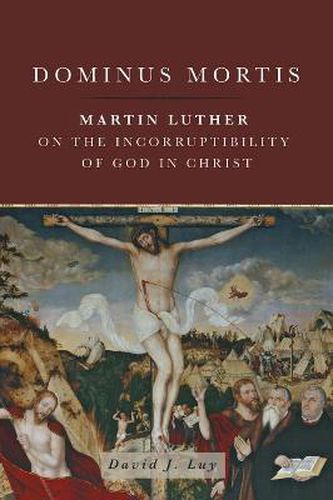Readings Newsletter
Become a Readings Member to make your shopping experience even easier.
Sign in or sign up for free!
You’re not far away from qualifying for FREE standard shipping within Australia
You’ve qualified for FREE standard shipping within Australia
The cart is loading…






Modern interpreters typically attach revolutionary significance to Luther’s Christology on account of its unprecedented endorsement of God’s ontological vulnerability. This passibilist reading of Luther’s theology has sourced a long channel of speculative theology and philosophy, from Hegel to Moltmann, which regards Luther as an ally against antique, philosophical assumptions, which are supposed to occlude the genuine immanence of God to history and experience. David J. Luy challenges this history of reception and rejects the interpretation of Luther’s Christology upon which it is founded. Dominus mortis creates the conditions necessary for an alternative appropriation of Luther’s Christological legacy. By re-specifying certain key aspects of Luther’s Christological commitments, Luy provides a careful reassessment of how Luther’s theology can make a contribution within ongoing attempts to adequately conceptualize divine immanence.
$9.00 standard shipping within Australia
FREE standard shipping within Australia for orders over $100.00
Express & International shipping calculated at checkout
Modern interpreters typically attach revolutionary significance to Luther’s Christology on account of its unprecedented endorsement of God’s ontological vulnerability. This passibilist reading of Luther’s theology has sourced a long channel of speculative theology and philosophy, from Hegel to Moltmann, which regards Luther as an ally against antique, philosophical assumptions, which are supposed to occlude the genuine immanence of God to history and experience. David J. Luy challenges this history of reception and rejects the interpretation of Luther’s Christology upon which it is founded. Dominus mortis creates the conditions necessary for an alternative appropriation of Luther’s Christological legacy. By re-specifying certain key aspects of Luther’s Christological commitments, Luy provides a careful reassessment of how Luther’s theology can make a contribution within ongoing attempts to adequately conceptualize divine immanence.